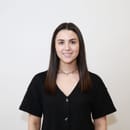Montclair State University offers an excellent makeup artistry program that turns into a makeup artist certification upon completion by graduation. We’ve all watched our favorite Youtuber or Instagram makeup guru apply makeup and tried it ourselves. We’ve all wondered why theirs looks so much better than ours. We’ve all wondered how their skin looks so flawless.
The key is in good makeup application, but that starts from the very basics. The classes offered at MSU start with just that. You’d be surprised how much you learn from a makeup artistry class, especially the types of things you couldn’t learn from a Youtube tutorial.
Skincare
One of the first things you learn, before even applying makeup, is skincare. How you treat your skin and identify your skin types is one of the most important things you can learn. You first need to identify your skin type before you can decide on products. For example, is your skin dry? Then an oil-based product is better. Is your skin oily? Then a water-based product is what you need. Understanding the ingredient of products you use is crucial to understanding how your skin might react, for example, avoid anything alcohol-based. My professor also pushes the use of a good moisturizer and under-eye cream. It’s so so so important to take care of your skin while you’re still young so it stays looking fresh as you age gracefully.
Primers
So before I started this class, I believed layers of primer then foundation and then a concealer was so unnecessary and was a lot of weight to put on your face. Then my professor showed us a great way to do it. She used a primer as a base for her foundation, but instead of applying foundation in a thick layer to her entire face with a beauty blender, she only applies foundation to “problem areas” (with breakouts, redness or blemishes) and uses a large, flat brush to apply foundation. This evens the skin tone and gives it a finished look when a full face isn’t necessary. The primer acts as a barrier against your skin. It allows the foundation to apply more evenly without it absorbing into your skin as much. Concealer goes on top of the foundation and typically is reserved for under the eyes and other “problem areas”.
Brushes
Brushes make the biggest difference. And I know, I thought the same thing: Why spend more on brushes when I can get the big cheap set from Wish? Trust me on this one. Cheaper doesn’t always mean better. Some brushes I recommend having are a flat brush in two sizes (one for foundation, one for concealer), an eyebrow spoolie, a blending brush, an angled brush and a lipstick brush. It will make the world of difference.
Create a Kit
My class focuses largely on how to work better with the products you already love. When my professor originally started the class, she had a contract with Bobbi Brown Cosmetics so she could only teach using their products. Now, we can use any product we like. One key thing to take away is that expensive products aren’t always better than things from the drug store. We have to build a kit of products that we understand how to use and like. For example, I use a mishmash of products, very few from the same company, and some even come from CVS. One of the best things we learned was how when applying makeup for someone else, you can cover product labels so as to not have a client see the products you’re using. Is it from Sephora or is it from CVS? It doesn’t matter, what’s important is that you know how the kit you created works.
Cleanliness
I don’t know how many times you need to hear this but clean your brushes. Even if you don’t want to do a deep clean (which you still should do more often than you already do), there are other ways of doing it. For example, keep a black towel with your makeup (and reserve it for only your makeup). When you apply eyeshadow, wipe the excess product off the brush on the towel. When you’re all done with your look for the day, you can spray all your brushes with rubbing alcohol. This was something my professor emphasized on, especially if you’re doing a look on someone else. Looking clean and being clean are good ways to make yourself look very professional. If you’re only doing makeup on yourself, it helps fight breakouts. Deep cleaning your brushes is still important, but if you’re in a pinch, there’s a quicker way to do it!
Not all schools have makeup artistry certification programs, but if yours does, maybe look into it. Some beauty schools have programs as well. I don’t necessarily intend to have a career in makeup, but I always found it fascinating. It’s also only six extra classes here at MSU. Take a class, you never know what you might learn and come to love.




